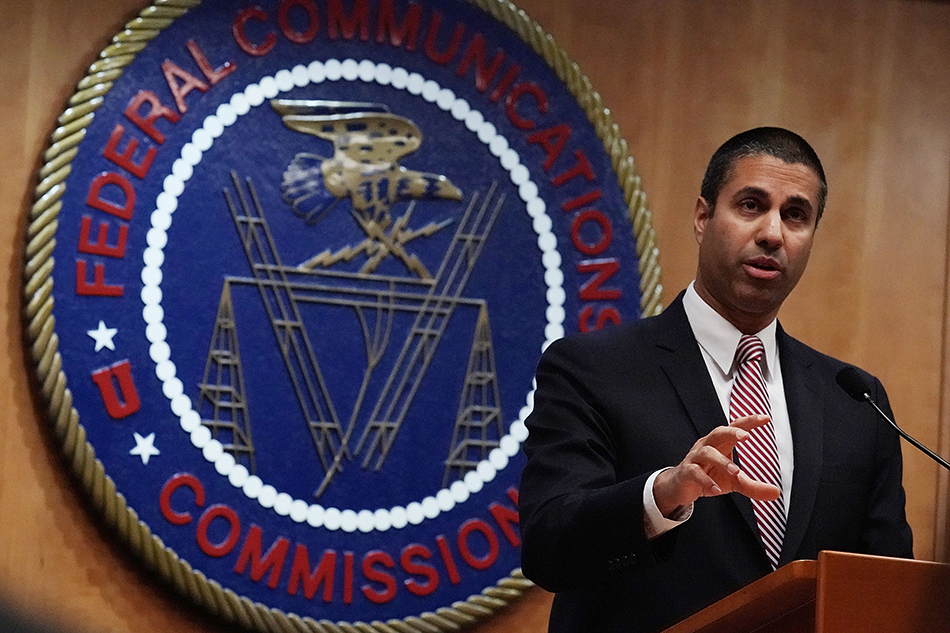Cable Lays Groundwork for Carriage Challenges
Asks FCC to cite First Amendment precedent in leased access order

The smarter way to stay on top of broadcasting and cable industry. Sign up below
You are now subscribed
Your newsletter sign-up was successful
Cable operators are asking the FCC to make it clear its decades-old program-
carriage mandates are constitutionally suspect.
And while they have signaled to the regulator they are OK with leaving the question of the constitutionality of must-carry for another day, operators want the FCC to soften that ground with precedential language they could use if, and more likely when, they do want to take aim at must-carry and other carriage-related mandates.
In teleconferences earlier this month with top staffers to all five commissioners and the chief of the Media Bureau, representatives of NCTA-The Internet & Television Association and über-members Comcast, Charter Communications and Cox Communications pressed the FCC to continue to consider the constitutionality of enforced speech regulations, in this case the leased-access rules operators say are unconstitutional speech restrictions.
RELATED: Broadcasters Challenge Constitutionality of Carriage Mandates
In June 2019, the FCC voted unanimously (with a couple of partial dissents) to tweak the rules requiring cable operators over a certain size to lease channel capacity to independent programmers at regulated rates. More recently, it voted to allow operators to charge tier-specific rates. The agency also sought comment on whether the rules should be scrapped in their entirety as unconstitutional.
Leased-access providers obviously don't think the rules are OK, and broadcasters are in agreement — and not because stations lease access on cable. But if the rules were considered a violation of cable operators’ First Amendment right to choose the content on their systems, the must-carry regime that allows broadcasters to claim free carriage on cable could be in jeopardy.
In their meetings with FCC staffers this month, cable operators cheered the tier-specific rate change. But they also expressed their “strong support” for the agency’s conclusion, which the two Democratic members dissented from, that leased access rests on a shaky constitutional foundation in light of the changes in the video marketplace.
The smarter way to stay on top of broadcasting and cable industry. Sign up below
They asked the FCC to make it even clearer that the “constitutional foundation is in substantial doubt.” But while cable operators have long argued that must-carry is a similar unconstitutional infringement on their editorial control of channel lineups and capacity, as well as an illegal takings under the Fifth Amendment, they did not overplay that hand.
They told the staffers that the FCC’s leased access order “appropriately concludes that it need not express any opinion on the constitutionality of other carriage-related obligations in this proceeding, which is focused solely on the leased access regime.”
But the FCC would be strengthening cable’s case against must-carry if, as the cable companies asked in the meeting, it “bolstered” the conclusions about leased access and the First Amendment by reference to some legal precedent NCTA and company offered up.
Cable operators want the FCC to bolster the Draft Second Report and Order’s conclusion that leased access is constitutionally suspect. They say the FCC can do that by specifically referencing a 2015 Supreme Court decision that they say trumps the 1996 Time Warner Entertainment decision that regulation is content-based “only if it favors or disfavors particular speech or views.”
TWE’s holding that leased access and must-carry are not content-based has provided the chief defense against arguments by the FCC and cable operators that there are First Amendment issues with them since if they were considered regulations based on types of speech, they would have to pass “strict” scrutiny to pass constitutional muster. Content regulation is not unconstitutional, but it must be narrowly tailored and further a compelling government interest.
Cable operators say the 2015 Supreme Court decision in Reed v. Town of Gilbert supersedes the TWE ruling and holds that speech regulation is content-based even if it does not discriminate among viewpoints. They also pointed to the language in a 2018 decision in National Institute of Family & Life Advocates v. Becerra that “a content-based regulation of speech occurs whenever the government compels a party to alter the content of its speech.”
RELATED: TV Stations Ask FCC to Revive Item Regulating OTT
They asked the FCC to reference that precedent in the order, which would not only boster their case against the constitutionality of leased access, but would be precedent they could turn to for a must-carry challenge.
The National Association of Broadcasters got wind of cable’s requests for precedential language and pushed back, saying the FCC only needs to show only to show "that cable operators remained “dominant in some video distribution markets" to justify regulations, something the NAB said is clearly still the case.
Contributing editor John Eggerton has been an editor and/or writer on media regulation, legislation and policy for over four decades, including covering the FCC, FTC, Congress, the major media trade associations, and the federal courts. In addition to Multichannel News and Broadcasting + Cable, his work has appeared in Radio World, TV Technology, TV Fax, This Week in Consumer Electronics, Variety and the Encyclopedia Britannica.

